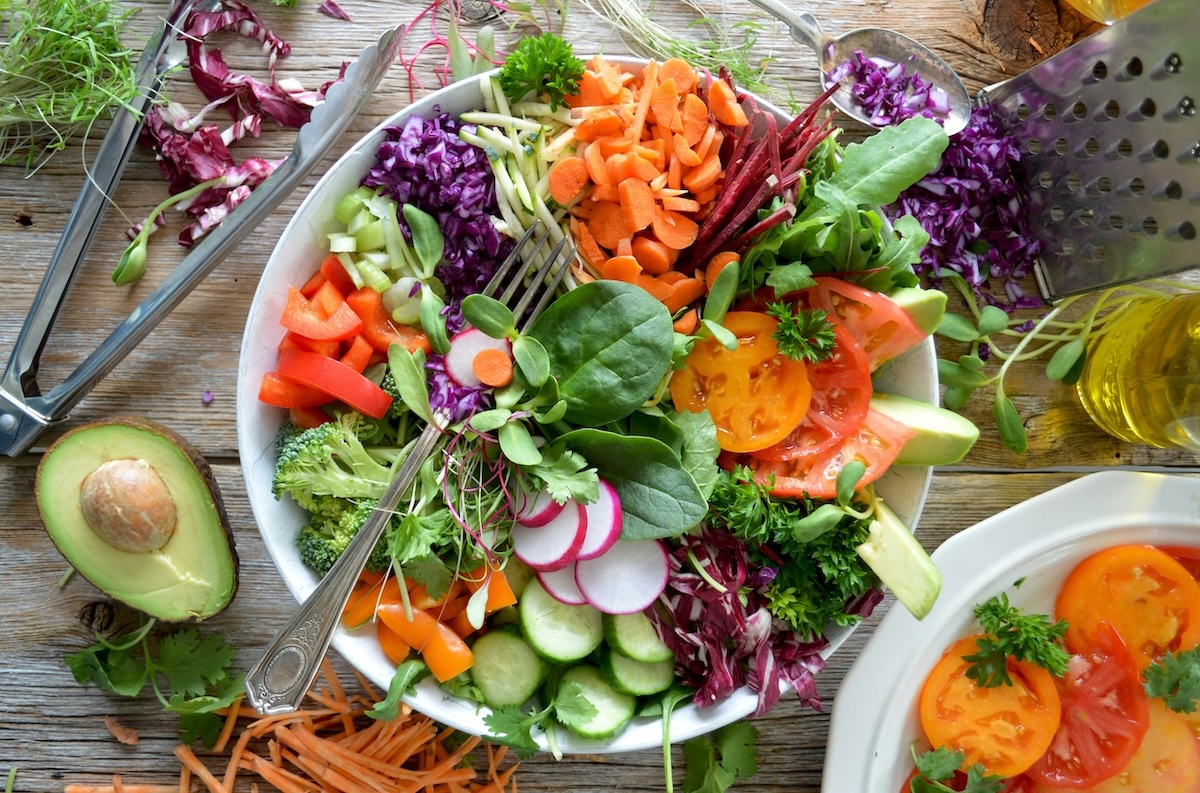Can Plant-Based Diets Prevent Cancer?

Can Plant-Based Diets Lower Your Cancer Risk?
One thing that I have come to realize in >25 years of talking to patients is that people are much more afraid of cancer than they are of heart disease. Even despite the fact that for every year for >100 years, heart disease has killed more people annually than ALL CANCERS COMBINED!
When I tell people that changes in their lifestyle can prevent heart disease, they sometimes listen. But if I tell them that the same changes can reduce the risk of cancer, I notice their eyes open a little wider, and their ears perk up a little more.
The good news for me? Every year it looks more and more convincing that the SAME lifestyle changes that help the heart ALSO help reduce the risk of cancer.
A recently published study in the American Journal of Clinical Nutrition adds to the evidence. Drawing from nearly 80,000 participants in the Adventist Health Study-2 (AHS-2), researchers found that those who followed vegetarian diets had significantly lower risks for several types of cancer—including some of the most common ones.
This study followed 79,468 members of the Seventh-Day Adventist Church, a group known for diverse dietary habits and low rates of smoking and alcohol use. These individuals were cancer-free at baseline, and followed for nearly 8 years. The types of diets studied were classified as:
- Vegans – no animal products
- Lacto-ovo vegetarians – eat dairy and/or eggs, but no meat or fish
- Pesco-vegetarians – include fish but avoid other meats
- Nonvegetarians – consume meat (at least once per week)
What were the key findings of the study?
Firstly, vegetarians have lower cancer risk overall. Compared to nonvegetarians, vegetarians had a 12% lower risk of all cancers and an 18% lower risk of medium-frequency cancers, such as stomach, thyroid, melanoma, and ovarian cancer. These findings were statistically significant, meaning they were unlikely to be due to chance. Vegetarians also had a reduced risk for specific cancers, like colorectal cancer (21% lower risk), stomach cancer (45% lower risk), and lymphomas (25% lower risk). There was also evidence suggesting lower risks for breast and prostate cancer—especially among certain vegetarian subgroups, such as younger vegans.
Vegan diets showed the greatest protection: Vegans had the strongest reductions in overall cancer risk, with a 24% lower risk of all cancers, 23% lower risk of medium-frequency cancers, and a whopping 43% lower risk of prostate cancer in younger vegans and a 31% lower risk of breast cancer in younger vegans. Lacto-ovo vegetarians and pesco-vegetarians also had significantly reduced risks but to a lesser extent.
How could a vegetarian diet prevent cancer? There are several reasons that explain why plant-based diets could be protective:
- Higher intake of fruits, vegetables, legumes, nuts, and whole grains, which are rich in cancer-fighting phytochemicals, fiber, and antioxidants
- Absence of red and processed meats, which are linked to increased risks of colorectal and stomach cancers
- Lower average body weight (vegetarians in the study had a lower BMI), which is itself associated with reduced cancer risk
- Healthier overall lifestyle, including lower rates of smoking and alcohol consumption
It is important to highlight that we have a lot of research at this point that suggests that the gastrointestinal (GI) system is particularly responsive to diet. Both colorectal and stomach cancers—where the food we eat comes into direct contact with tissues—were significantly less common among vegetarians. This aligns with what we already know about the dangers of processed meats and the protective role of fiber, fruits, and vegetables.
Now, maybe one could argue that these findings only apply to this very specific group of people. While the Adventist population may differ in some ways from the general U.S. population—especially in terms of lifestyle habits—they also offer a key advantage when it comes to research: wide variation in diet with relatively few confounding factors like smoking or heavy drinking.
The study also benefits from:
- Validated dietary data from food frequency questionnaires and dietary recalls
- Comprehensive cancer tracking through linkage with national and provincial cancer registries
- Large numbers of vegetarian participants, including one of the largest cohorts of vegans ever studied for cancer incidence
It's important to note that this was an observational study, not a randomized trial. That means it can’t prove cause and effect—only association. Still, the associations are compelling, especially since they remained after adjusting for age, sex, race, education, family history, screening behaviors, BMI, and lifestyle factors like exercise and alcohol use. The study also did not find evidence of increased cancer risk for any cancer type among vegetarians. Which means that there is NO evidence of any harm with trying this type of diet.
So if you're looking for a dietary approach that could help reduce your cancer risk (and also improve your heart health), this large, high-quality study adds to growing evidence in favor of diets that are rich in minimally processed, whole plant foods.
Even small shifts—like replacing red meat with beans or lentils, adding more vegetables to your meals, or reducing dairy and processed meats—can lead to better long-term health.
One way to start to move in this direction and “test the water” is to choose one night a week to have a completely plant-based meal. Make the choice to start a “Meat-less Monday” routine and begin your own journey towards better health.
At Wisconsin Cardiology Associates, we counsel our patients to aim for a healthy, plant-based diet, emphasizing fruits, vegetables, beans, lentils, whole grains and nuts. Have questions about the best way you can prevent heart disease? Call us and make an appointment for a consultation.

